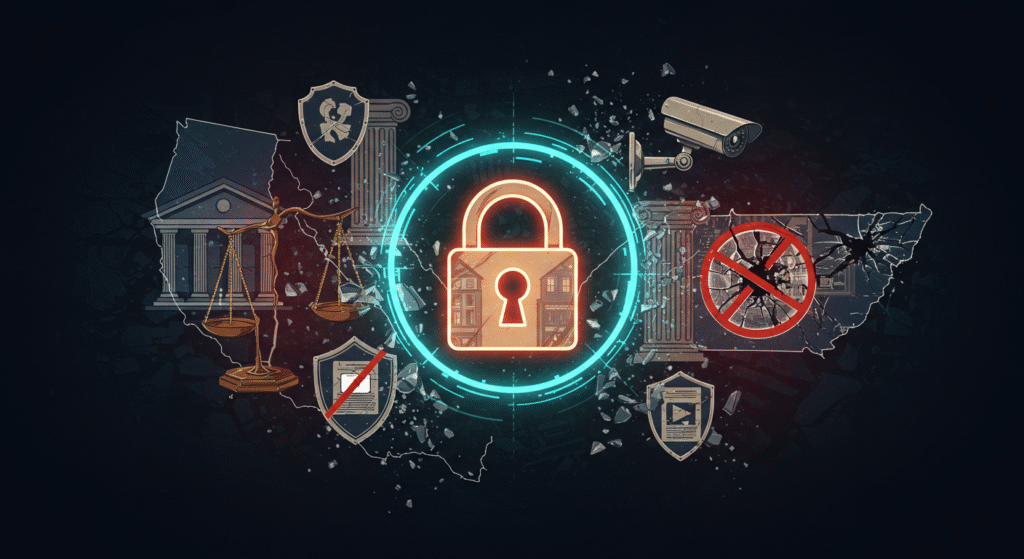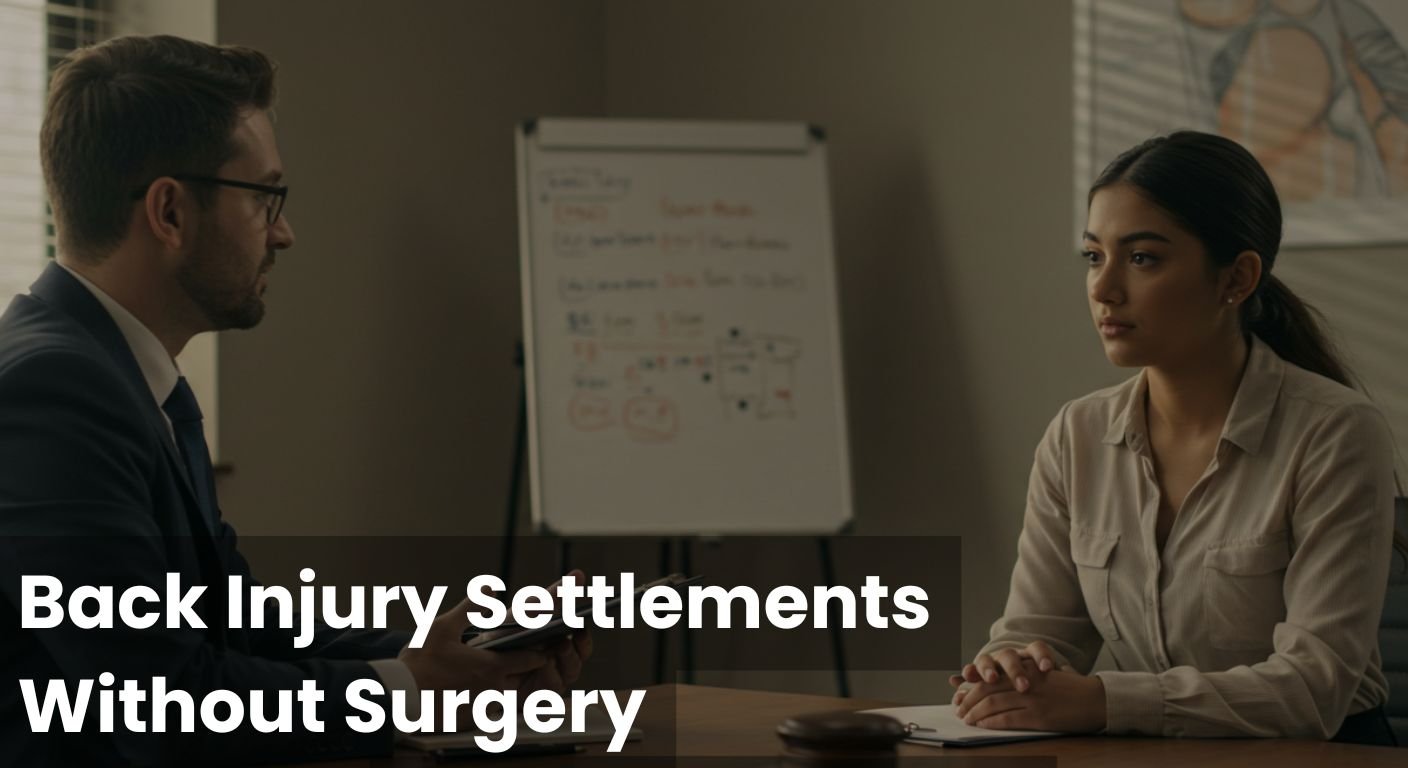Introduction
Picture yourself in a hotel room. You think it’s a safe place to relax and change clothes. But someone is secretly watching you through a tiny hole in the door with a camera. This scary thing happened to Erin Andrews, a famous sports reporter. In 2008, a man recorded her without clothes. The video went online, and millions saw it. This led to a huge lawsuit. In 2016, a jury gave her $55 million.
This case is more than one bad moment. It changed how we think about privacy. Hotels now work harder to keep guests safe. People learned that privacy is super important. I’ve studied many cases like this, and this one set new rules. It shows that companies can face big fines if they don’t protect people.
I’m Orland Howell. I’ve spent four years writing about lawsuits and legal stuff in a way that’s easy to understand. In this article, we’ll go step by step through what happened. We’ll talk about Erin’s pain and what this means for you today. Everything here is true and clear to help you understand.
Who Is Erin Andrews?
Erin Andrews is a well-known TV sports reporter. She works for big channels like ESPN and Fox Sports. Born in 1978, she loved sports as a kid. She got a broadcasting degree from the University of Florida. By her 20s, she was on TV, talking about college football and big games. People love her energy and how she explains things.
In 2008, her life changed. She was 30 and traveled a lot for work. Hotels felt like home. But in Nashville, while covering a football game, a stalker targeted her. The video he made hurt her a lot. It made her feel scared and embarrassed. Even after the lawsuit, she said it broke her heart. Today, she still reports on sports and has been on shows like Dancing with the Stars. She also fights for privacy rights. Her story shows how strong she is.
The Incident: What Happened
In September 2008, Erin stayed at the Marriott hotel in Nashville, Tennessee. She was there for her job. She didn’t know danger was close. A man named Michael David Barrett was obsessed with her. He wasn’t a friend or fan—he was a stalker from Illinois. He drove to Nashville to find her.
Before arriving, Barrett called the hotel. He asked if Erin was staying there. The front desk said yes and told him her floor. Then, he asked for a room next to hers, and the hotel gave it to him. No one asked Erin or thought it was weird. Barrett acted fast. He used a tool to make the peephole in Erin’s door bigger. He recorded her with his phone for about four and a half minutes while she changed clothes. She had no idea.
Barrett tried to sell the video to a gossip website called TMZ. They said no. So, he put it online himself. It spread fast, and millions watched it. Erin found out when friends called her. She was shocked. She cried and felt humiliated. This broke her trust in hotels.
The Stalker: Who Was Michael Barrett?
Michael David Barrett was 38 in 2008. He worked as a salesman in Illinois but had a bad side. He followed celebrities online and focused on Erin. He found her travel plans on public websites and went to Nashville to target her.
In court, Barrett said he wanted money from the video. He said he wasn’t proud, but that didn’t undo the harm. He also recorded Erin in Chicago later that year. The FBI caught him. In 2009, he admitted to stalking across states. A judge sent him to prison for 30 months and made him pay fines.
Barrett’s story is a warning. Stalkers can seem normal and use simple tools like phones, but they cause big pain. In Erin’s lawsuit, the jury said he was 51% to blame, meaning he owed about $28 million of the $55 million. He didn’t have the money, but the court held him responsible.
The Lawsuit: Blaming the Hotel
Erin didn’t just sue Barrett. She also sued the hotel. In 2010, she filed a case in Tennessee court, asking for $75 million. Why the hotel? Because they helped the stalker. Staff shared her room details. They let Barrett book a room next to hers without asking her. No one checked the doors or saw him mess with the peephole.
The hotel was owned by West End Hotel Partners and run by Windsor Capital Group. They said it was all Barrett’s fault and called him a criminal. They even said the video helped Erin’s career, which was a mean thing to say and made her cry in court. Erin’s lawyers fought back. They said hotels must keep guests safe, like a promise when you check in. A lawyer said, “This should feel like home.”
The trial started in February 2016 and lasted one week. Erin told her story. Friends and experts spoke too. The jury listened closely.
The Trial: A Week of Sad Stories
The Nashville courtroom was serious. Erin walked in bravely but scared. She wore a simple dress. The jury had 12 people—five men and seven women. They heard from many people.
Erin spoke first. She told how she learned about the video. She said she screamed and felt ashamed. People stared at her, so she moved cities to hide. She used fake names at hotels. She said, “I just wanted to be the sports girl. Now I’m the scandal girl.” Her tears showed her pain.
Experts helped her case. A computer expert said the video was watched 17 million times. A psychologist said her fear was like a serious condition called PTSD. Hotel safety experts said the Marriott broke basic rules, like not patrolling halls or keeping guest details private.
Barrett spoke too. He seemed sorry, but the harm was done. The hotel’s lawyers blamed only him and said Erin was strong. The jury didn’t agree. After one day of talking, they decided.
The Verdict: $55 Million and Shared Blame
On March 7, 2016, the jury came back. Erin waited nervously. Her lawyers held hands. The jury said Erin would get $55 million. She cried with relief. Jurors hugged her, some took pictures, and she signed autographs. It was a happy and fair moment.
The blame was split. Barrett was 51% responsible, owing $28 million. The hotel companies were 49% responsible, owing $27 million. It was less than the $75 million Erin asked for, but it was a big deal. The hotel said they’d fight the decision but settled in April 2016 for a secret amount. Erin got money to help her heal and, more importantly, justice.
The Emotional Pain: Erin’s Struggle
Money can’t fix a broken heart. Erin’s story shows that. The video changed her life. She felt watched everywhere and couldn’t sleep. She saw doctors for anxiety. She said in court, “It broke me.” Friends said she wasn’t as happy. She quit some jobs because people stared.
Even now, the pain stays. Erin talks about being scared in hotels. She checks peepholes and uses fake names. But she turned her pain into strength. She helps stalking victims and shares her story to support others. From my work on cases like this, I know speaking out is a big win. It makes people listen.
Changes in Hotels: Keeping Guests Safe
This case changed hotels. Before, they thought stalkers weren’t their problem. Now, they know better. Marriott made new rules fast. They stopped sharing guest details and trained staff to spot danger. Many hotels added cameras in halls, checked doors more, and used key cards to track who comes in.
Other hotels, like Hilton and Hyatt, did the same across the U.S. They made privacy a big rule. No one shares room numbers with strangers now. They ask guests before giving nearby rooms. This case showed hotels they must keep guests safe, like family. In my work, I’ve seen big fines like this make companies change quickly.
Bigger Privacy Changes: A Wake-Up Call

This case went beyond hotels. It changed privacy laws. Before, it was hard to prove privacy was hurt. Now, courts see emotional pain as real harm and give big awards. This helped other victims, especially women hurt by secret videos, win their cases.
It also led to new laws. Tennessee made it a crime to film someone for sexual reasons, and offenders must register. California talked about a “Stalkers Act.” States now fight secret videos harder, and websites remove them faster. This case shows one story can make big changes. Privacy is a right, not a bonus.
Lessons for You: Stay Safe
What can you learn? First, be careful in hotels. Put tape over peepholes, ask for rooms away from corners, and book with a different name. Second, know your rights. If someone shares your private details, you can sue for privacy invasion. Emotional pain matters. Third, speak up. Like Erin, sharing your story helps others.
Cameras are everywhere today, but you can protect yourself. This case teaches that. As someone who studies these cases, I see that victims win when they show companies failed. Use this to stay safe.
Conclusion: Strength and Change
The Erin Andrews lawsuit was a big moment. From a scary night in 2008 to a $55 million win in 2016, it showed privacy matters. Erin got justice. Hotels got safer. Laws got stronger. Millions learned to respect consent. Erin still shines on TV, proving survivors can do great things. Her case means no one should fear a peephole. It means companies must protect us. If this happens to you, know there’s help. Cases like this make the law stronger and the world safer.
Disclaimer: This article is for informational purposes only and does not constitute legal advice. Laws and regulations vary by jurisdiction, and each case has unique circumstances. For legal guidance, consult a qualified attorney. All information in this article is based on public court records and credible news reports. No misleading or inaccurate information is included. The author and publisher are not responsible for any actions taken based on this information.
Explore More:
Cierra Mist Lawsuit: The Real Story Behind the Viral Name Fight and PepsiCo’s Records
Why Don’t We Lawsuit: how the 2025 mixed verdict stripped the band of its name
Crepe Erase Lawsuit — 2025 Easy Guide to False Claims, Sneaky Subscriptions, and Refunds

Orland Howell is a seasoned content writer with four years of deep expertise in crafting compelling and informative content about lawsuit settlements. With a keen understanding of legal nuances and a talent for translating complex topics into clear, engaging narratives, Orland helps law firms, legal professionals, and clients communicate effectively. His work spans blog posts, articles, whitepapers, and website content, all designed to educate, inform, and drive results. Passionate about empowering audiences with knowledge, Orland combines precision, creativity, and industry insight to deliver content that resonates and builds trust.






